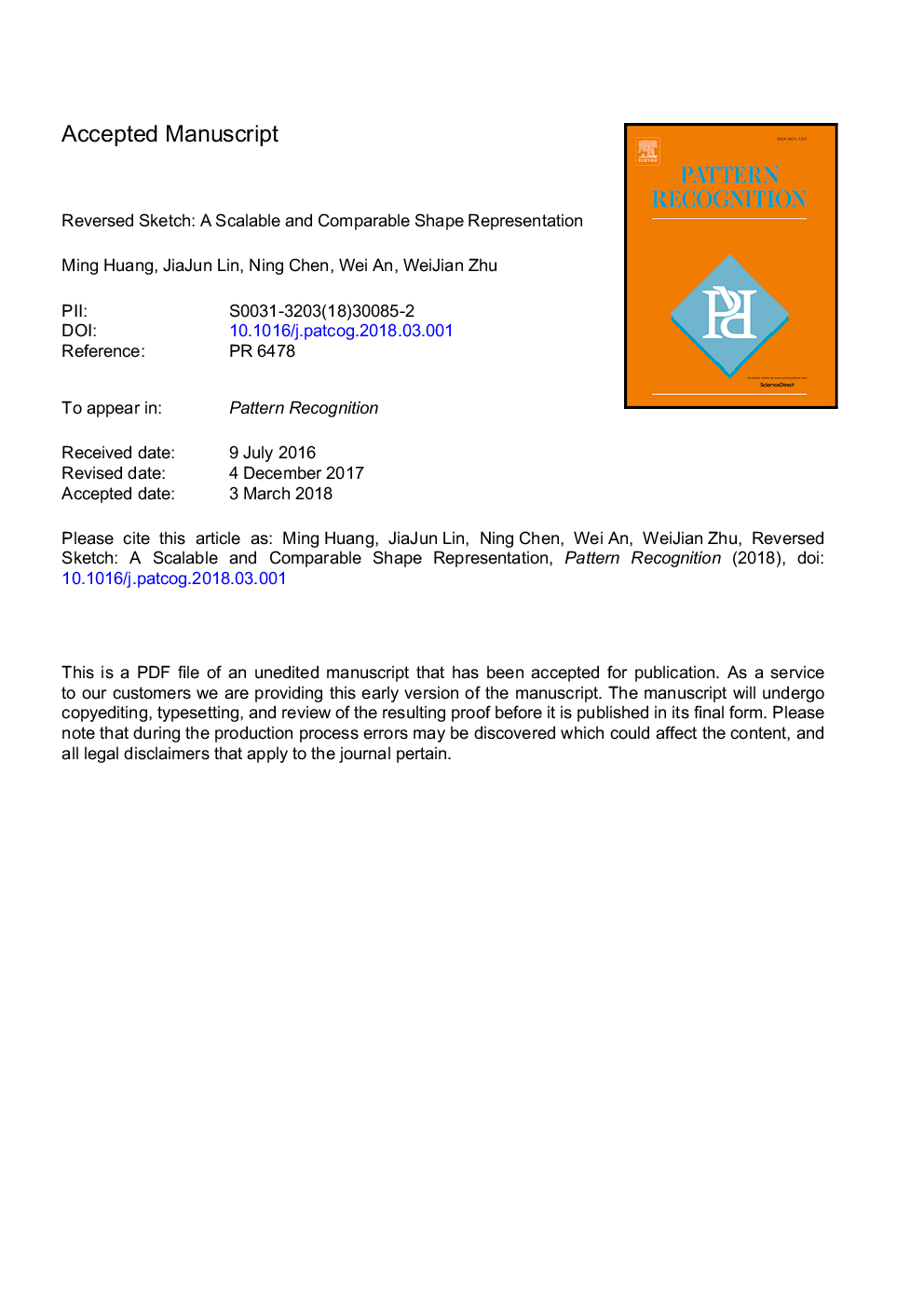| Article ID | Journal | Published Year | Pages | File Type |
|---|---|---|---|---|
| 6938953 | Pattern Recognition | 2018 | 30 Pages |
Abstract
The shape features of images are essential to image recognition, comparison and retrieval since most users are more interested in recognizing or comparing images by shape than by color and texture [1]. Comparing or retrieving images by shape is still envisioned as one of the most challenging works in image comparison and retrieval because of the lack of effective and efficient representations of shape features in image comparison and retrieval. In this paper, we propose a scalable and comparable shape representation, namely “Reversed Sketch”, is proposed, on which a shape feature extraction and utilization framework is built. With this representation, we represent an image object using a polygon extracted from the contour of the image object by a force-driving sliding box algorithm. A polygon evolution algorithm is then proposed for transforming the first wiggly polygon into a more sketchy form for efficiently processing, which makes our shape representation more scalable. Also, we present a comparable metric drawn from this representation combined with the comparing algorithm, which is invariant to scaling, rotation and translation and thereby is suitable for image recognition, registration and comparison. The proposed shape representation is especially suitable for image retrieval because with it a hierarchical index which is very useful for image retrieval can be built on the image dataset. Extensive experiments are carried out and the experiment results show that with our shape representation the shape features can be quickly extracted from an image, simplified as needed, and used to efficiently comparing shapes in accord with people's perception. Experiment results derived with practical datasets indicate that our framework can achieve better comparing precision and efficiency, compared with some other methods.
Related Topics
Physical Sciences and Engineering
Computer Science
Computer Vision and Pattern Recognition
Authors
Ming Huang, JiaJun Lin, Ning Chen, Wei An, WeiJian Zhu,
